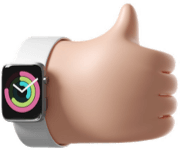Custom Software for Customer and Order Management in Service and Retail
Custom software is designed around a business’s unique processes, overcoming the limitations of one-size-fits-all packages. In service-centric operations—where direct customer contact, appointments, orders, deliveries, campaign management, and loyalty programs are essential—standard tools often fall short. A tailored platform aligns with your workflows, reduces operational errors, and supports sustainable growth with real-time visibility.
What Is Custom Software and Why Choose It?
While off-the-shelf tools target general needs, custom software is shaped around specific requirements. This brings advantages in process fit, integration flexibility, security, and scalability. It shines in appointment planning, order handling, stock and pricing control, approval flows, and labeled tracking. With mobile apps, e-invoicing/archiving, online payments, SMS/WhatsApp messaging, and VOIP integrations, management becomes centralized and consistent.
Key Benefits of Custom Software
- Process Fit: Work orders, appointments, pickup/delivery plans, and labeled tracking mirror your exact operations.
- Scalability: Performance and manageability hold steady as branches, devices, and users grow.
- Data Security: Compliance-ready design, role-based access, logging, and backups keep information safe.
- Integrations: Payments, accounting, email/SMS, caller ID, and live chat connect in one data layer.
- Reporting: Profitability, cost, staff efficiency, repeat purchase, and campaign performance are tracked with clarity.
Sector-Specific Use Cases
Dry Cleaning
Barcode/QR labeling at intake prevents mix-ups, while approval flows handle price changes transparently. Stains, fabric notes, photos, measurements, and delivery dates sit in a single record. Status notifications keep customers updated, and returns/complaints are logged for continuous improvement.
Cobbler and Leather Care
Accurate item definitions (material, color, size, accessories), damage notes, and photo-backed steps build trust. Work-order flows, piece-level labels, and ready-for-pickup alerts reduce confusion. Service bundles (sole replacement, dyeing, care kits) are standardized and priced consistently.
Carpet Washing
Dimensions, type, stain attributes, pickup and delivery plans, and service routes are unified. Pickup scheduling, driver and vehicle assignment, warehouse in–out, and washing/drying/packaging stages are visible end-to-end. SMS updates and order tracking links improve transparency.
Car Wash
Service packages (interior–exterior, detailing, polishing) are standardized; duration, pricing, and consumables are recorded. Subscriptions or multi-pass cards with loyalty points lift retention. Appointment and queue management reduce peak-time waits.
Tailoring and Alterations
Measurements, patterns, fabric and accessory details must be recorded precisely, alongside delivery and fitting plans. Custom software preserves customer history (prior measurements and patterns), while approval flows inform clients of price differences before work continues.
Upholstery Cleaning
Address management, crew planning, and route optimization lower costs. Recorded chemicals/equipment and drying times enable quality control. Customer feedback (ratings and comments) feeds continuous service improvement.
Organic Product Sales
Batch/lot tracking, expiry monitoring, and transparent supply chains build confidence. Online ordering with delivery time windows, an omnichannel approach (store + web), and dynamic pricing optimize sales. Loyalty and promotions increase the share of repeat customers.
Pet Grooming
High appointment density can hurt service quality if unmanaged. The system tracks species/breed/allergy details, used products, and care history. Vaccination/parasite reminders and seasonal packages (cut, bath, nail) create predictable recurring revenue. Customer cards and SMS updates keep owners informed.
Beauty Salons
Service history (color formulas, application notes), package sales, and session planning are managed centrally. Automated reminders reduce no-shows. Retail product sales (shampoo, care kits) are supported by stock tracking and targeted promotions within the same system.
Curtain and Rug Retail
On-site measurement appointments, made-to-order timelines, and delivery planning are tracked end to end. Color–texture swatches, variants, and yardage calculations reduce errors. Returns/exchanges and installation services are logged to keep the full customer journey in one place.
Digitizing Core Workflows
Custom software standardizes operations for speed and quality:
- Appointments and Capacity: Slot-based booking, resource (staff/equipment) planning, and load maps.
- Order Intake and Labeling: Barcode/QR matching of items, with stage-by-stage status tracking.
- Approvals and Price Changes: Digital confirmations and transparent pricing reduce disputes.
- Notifications and Communication: SMS/email/WhatsApp messages for ready and delivery reminders.
- Stock and Procurement: Consumables tracking, batches and expiry, cost and margin analytics.
- Reporting: Repeat rate, average basket, turnaround time, staff productivity, and profitability.
Security, Compliance, and Architecture
Service businesses process personal data and contact information. The platform should be designed for data protection laws, supporting data minimization, informed consent, retention periods, masking, role-based access, and encrypted backups. Audit logs provide evidence in disputes. For multi-branch structures, cloud-based architecture boosts performance and high availability while simplifying centralized governance.
Scalability and Integrations
Growth adds branches, users, and devices. Custom software integrates with payment gateways, e-invoicing/archiving, caller ID, live support, accounting, and marketing automation. API-based data exchange eliminates duplication, reduces manual errors, and accelerates decision-making with a single source of truth.
Future Outlook: AI and Automation
AI enables demand forecasting, dynamic pricing, personalized campaigns, and predictive maintenance. Computer vision assists with product classification; intelligent routing optimizes deliveries; chatbots extend support to 24/7. These capabilities raise repeat purchase rates and lifetime value while improving operational resilience.
FAQ – Frequently Asked Questions
Custom software or off-the-shelf?
Off-the-shelf can be quick to start, but flexibility is limited as processes grow complex. Custom software is a long-term investment for businesses that want to differentiate workflows and scale reliably.
How do implementation and migration work?
Needs analysis, data cleansing, training, and pilot usage are the main phases. Accurate data migration and change management for user habits are critical to success.
How is data protection ensured?
Role-based access, encryption, access logs, backups, and data masking form the baseline. Retention periods and deletion policies are enforced within the platform to remain compliant.
What does reporting cover?
Sales, profitability, cycle times, stock turns, campaign and loyalty effectiveness are delivered through decision dashboards for daily and strategic monitoring.
How are multi-branch operations handled?
Branch-level permissions, pricing, and campaigns are managed centrally. Consolidated reporting provides a unified view across locations, while local controls preserve flexibility.
Conclusion
Custom software standardizes customer and order management in service and retail, delivering speed, quality, and visibility. From dry cleaning, cobbler, carpet and upholstery cleaning, car wash, tailoring, and organic product sales to pet grooming, beauty salons, and curtain/rug retail, critical steps like appointments, labeling, approvals, stock, and delivery are coordinated from a single system. With strong security, the right integrations, and a scalable architecture, operational efficiency rises and customer satisfaction becomes measurable and repeatable.









